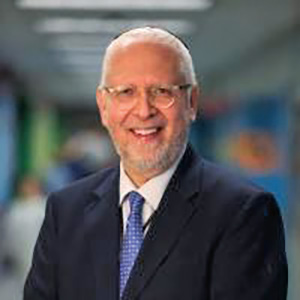
For thousands of years, educators of children have focused on two important areas: the intellectual development of their charges, and the moral development of their charges. For a long time it was thought that the greatest predictor of success and happiness in a person’s life lies in the realm of the intellect. The thinking went along the lines of “the smarter we can get Johnnie or Janie to be, the more successful and the happier he or she will be as an adult.”
One of the problems with this line of thinking is that repeated studies have shown that there is precious little we can do to change a person’s intelligence. Yes, we can dramatically increase a person’s command of factual knowledge, but we cannot make huge differences in that person’s intelligence quotient. Still, there is an even bigger problem with thinking that the greatest predictor of success and happiness in a person’s life lies in the realm of the intellect: it is simply not true. Here again, repeated studies have documented that it is not one’s intellect but rather one’s willpower that predicts success and happiness in life. Willpower: the ability to control one’s impulses and instincts for a greater good.
Approximately 50 years ago, researchers conducted a famous study that has since come to be known as the “marshmallow experiment.” In the comfort of a research room (equipped with a hidden camera), an adult researcher would offer to the lone subject child one marshmallow, with a stipulation—the child could eat the marshmallow now, and receive nothing more. Or… if the child would hold off from eating the marshmallow until the adult returned to the room 10 minutes later, the child would receive more marshmallows that he or she would then be able to eat. The experiment was repeated numerous times with different children. Some children ate the marshmallow immediately. Others would hold off for a while before giving in to their appetite. Still others distracted themselves, often in very creative ways, with different activities, so as not to eat the marshmallow and reap a greater reward with more marshmallows 10 minutes later.
A fascinating study indeed. But its ultimate significance would not be unlocked until just recently. Researchers in the past decade realized that the world of social science was sitting on data in the form of the identities of these many child subjects from the old marshmallow experiment. These subjects were now in their 40s and 50s, well along in life. The new generation of researchers contacted many of these former child subjects and were astonished by what they found: There was an extraordinarily high correlation between holding off and not eating the first marshmallow and success and happiness in later life, by every single measure of success determined by economists and social scientists—income levels, results on happiness survey questionnaires, and a host of other criteria.
There is great news with these findings. Willpower can be developed and improved, unlike intelligence quotients. Education can make a profound difference in this very important area if we consciously design curricula with this objective in mind. When joined with a program for intellectual development, we will have reached the treasure of great chinuch. The Rambam, in the third section of the Moreh Nevuchim, teaches that a proper analytic approach with a wealth of knowledge—along with mastery over one’s impulses—are the two major objectives of the Torah’s teachings. With that, b’ezrat Hashem, we are prepared for true success and happiness.
(I enthusiastically recommend the book “Willpower” by John Tierney and Roy Baumeister. It elaborates greatly and expands upon the role of education and training in developing the critical factor of willpower, and can be truly life-changing!)
By Rabbi Saul Zucker
Rabbi Saul Zucker, head of school at Ben Porat Yosef, is an educational leader with over 25 years of experience and a history of advocating for progressive education in both Judaic and general studies.









